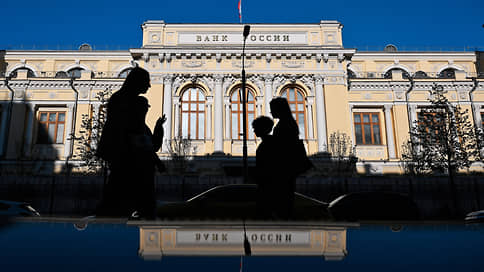MFI earned for the exclusion – Kommersant
[ad_1]

The Bank of Russia has returned to the practice of removing unreliable microfinance organizations from the market. On May 5, the Central Bank excluded the Cyberlending company, which was one of the top 5 players in the payday loans segment, from the register of MFIs. The reason was the imposition of additional services on borrowers. The topic of combating the imposition of services by various players in the financial market has recently been updated.
On May 5, the Bank of Russia announced the exclusion of Cyberlending from the register of MFIs. As reasons for exclusion from the register, the regulator indicates violations in the provision of information and reporting, reports to the CBI, as well as violations in the calculation of the full cost of the loan, failure to provide information on the provision of additional services to the borrower, violations in the calculation of the maximum debt burden of the borrower.
Cyberlanding indicated that in recent years the company has reduced the number of incoming complaints by 37%. The company has stopped issuing new loans, they said.
According to the ranking of the MFO Expert RA, Cyberlanding specialized in issuing payday loans (PDL; for a period of no more than 30 days and for an amount of no more than 30 thousand rubles), according to this indicator, it was among the top 5 companies at the end of 2022 with a portfolio of 3.4 billion rubles.
The Central Bank has not excluded MFOs from the register for a long time, the last time a serious supervisory measure in relation to such an organization was the forced limitation of the accrual of fines and penalties in March 2023 (see Kommersant dated March 31). The clearing of the Russian financial market took place in 2015-2018, notes Ivan Uklein, director of banking ratings at Expert RA, now companies and banks are excluded from the registers mainly due to the voluntary surrender of a license.
With any tightening of regulation, lenders – both banks and other financial organizations – will always look for additional sources of income, the SRO MiR notes. Experts have already warned that against the backdrop of tightening regulatory requirements, MFIs may become more active in offering imposed services in an attempt to compensate for retiring profits, experts have already warned (see Kommersant dated April 4). MFIs still resort to tricks that can be regarded as unscrupulous practices, Alla Khrapunova, an expert of the Popular Front project For the Rights of Borrowers, agrees. Among them are the so-called pre-installed ticks, and insufficiently visually clear presentation of documents to the borrower for review, she lists. “Documents can be formed into a package that a person must read meaningfully, which, unfortunately, many do not,” the expert admits.
Roman Makarov, General Director of MFC Zaimer, clarifies that many companies in the microfinance sector openly provide “package” services, but their conditions differ significantly from hidden, imposed services in that the borrower retains the right to refuse them at the time of loan processing and the right to return the payment for the service, if it was issued by accident.
To change the situation with the imposition of services, complex measures are needed. “Among such measures, I would name warnings, inspections of the activities of MFIs, in respect of which complaints are most often received,” says Yury Fedyukin, managing partner at Enterprise Legal Solutions. “The key point is whether the borrower was aware of the service being provided to him. If not, this is a violation of the law, the borrower has the right to refuse the service and demand reimbursement of its cost even after the conclusion of the contract, ”explains the lawyer.
In any case, the fight against the imposition of additional services has recently again become a hot topic for the Central Bank, and this applies to all financial markets – from insurance to brokerage. As for MFIs, according to Expert RA, the register will miss at least 200 organizations by the end of 2023: at the beginning of 2023 there were 1162 companies in it, now – 1084.
[ad_2]
Source link





